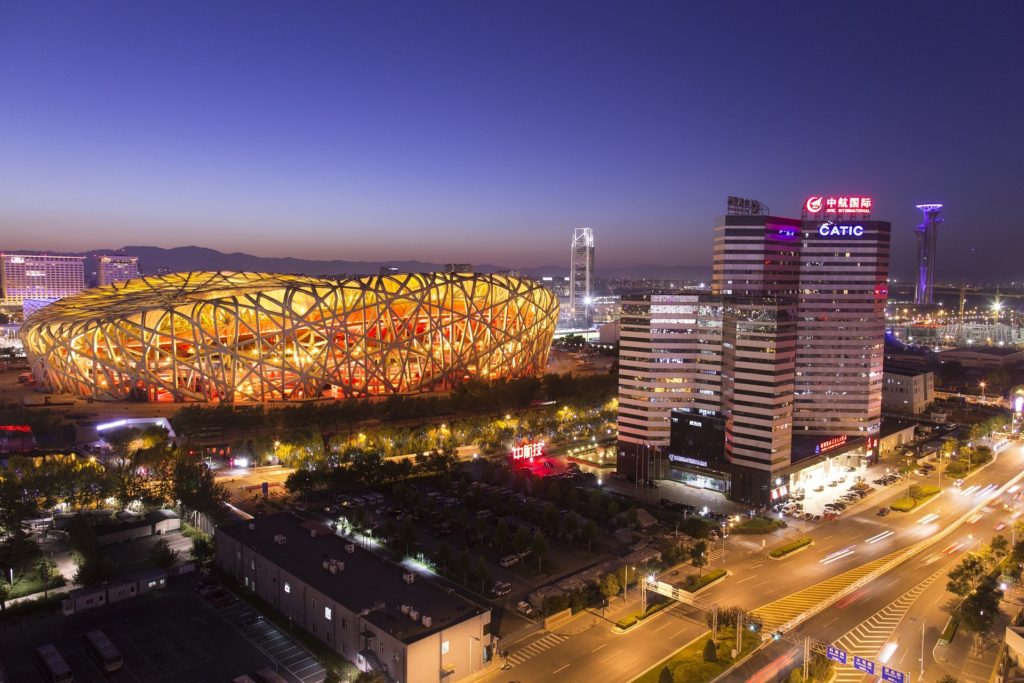The Peninsula
China’s Narrow-minded Retaliation Over THAAD
Published April 4, 2017
Category: South Korea

By Jaeho Jeon
Korean golfer Kim Hae-rym won the World Ladies Championship which was held in China in March. But when she won, her face could not be seen on air because the Chinese broadcaster only showed a shot of her legs. It is extremely unusual for a broadcaster to only show the winner’s legs when they win a championship. At that time, Kim was wearing a cap with the logo of her main sponsor, Lotte, which is the company that provided the site for the THAAD (Terminal High Altitude Area Defense) deployment in South Korea.
Since South Korea announced the deployment of THAAD, China has been harassing South Korea through various channels. China blocked imports of Korean dramas and movies. The Beijing International Film Festival, which will be held in April, did not invite any Korean films. Customs procedures for ‘made in Korea’ products were delayed from 3 to 4 days to 3 to 4 weeks, and Chinese tourists are being prevented from traveling to South Korea. While 63 out of 99 Lotte Mart stores in China were closed for supposed health and safety reasons.
China has been opposed to the deployment of THAAD in South Korea for several years and has sought to pull South Korea to closer to China. So, it is understandable that China may have been disappointed when the United States and South Korea decided to deploy THAAD in South Korea. Even so, many Koreans see the Chinese economic sanctions as a narrow-minded action.
Some Chinese argue that the THAAD deployment in South Korea is similar to setting up a missile base in Cuba. When the Soviet Union tried to set up a missile base in Cuba in the 1960s, the U.S. stringently opposed the buildup and suggested it could result in a nuclear war. Some Chinese insist that “U.S. was going to do nuclear war, so it is natural for China to retaliate.”
It is nonsense to compare a defensive system like THAAD to a missile designed to attack another country. And there is another difference. The U.S. did not harass the Cuba without saying a word to the Soviet Union. On the other hand, China has been retaliating against South Korea in many ways, but has not said a word about the U.S, which has led the THAAD deployment. They are also closing their eyes to the North Korean nuclear issue, which is the root cause of the THAAD deployment. North Korea conducted three nuclear tests since the Kim Jong-un regime came to power and tested 46 missiles.
Previously, South Koreans did not have a negative opinion of China. Many Koreans, however, are now having second thoughts about China after experiencing economic retaliation. What can China gain from this economic retaliation? China might hope that South Korea breaks its relationship with the U.S. and forms an alliance with China. But few South Koreans think that will happen. Rather, the worse it is with China, the better it will be with the United States.
As its economic strength grows, China will not hesitate to retaliate if it does not like the policies of another country. When the Norwegian Nobel Committee chose Liu Xiaobo, Chinese dissident, as a Nobel Peace Prize winner in 2010, China forbade him and his family from attending the awards ceremony and banned Norwegian salmon imports. When the territorial dispute with Japan broke out in 2012, China restricted tourism to Japan. When the British prime minister met the Dalai Lama, China delayed ministerial talks indefinitely.
What has changed after these retaliations? The Nobel Prize ceremony was held with an empty chair and attracted many attendees. Territorial disputes with Japan are still unresolved, and European leaders are still meeting the Dalai Lama. China’s retaliatory measures are narrowing rather than widening China’s options on the world stage. The economic retaliation against Korea is not likely to change South Korea’s behavior, and it is more likely to make China’s reputation worse.
Jaeho Jeon is a reporter at ChosunBiz and a visiting fellow at the Korea Economic Institute of America. The views expressed here are the author’s alone.
